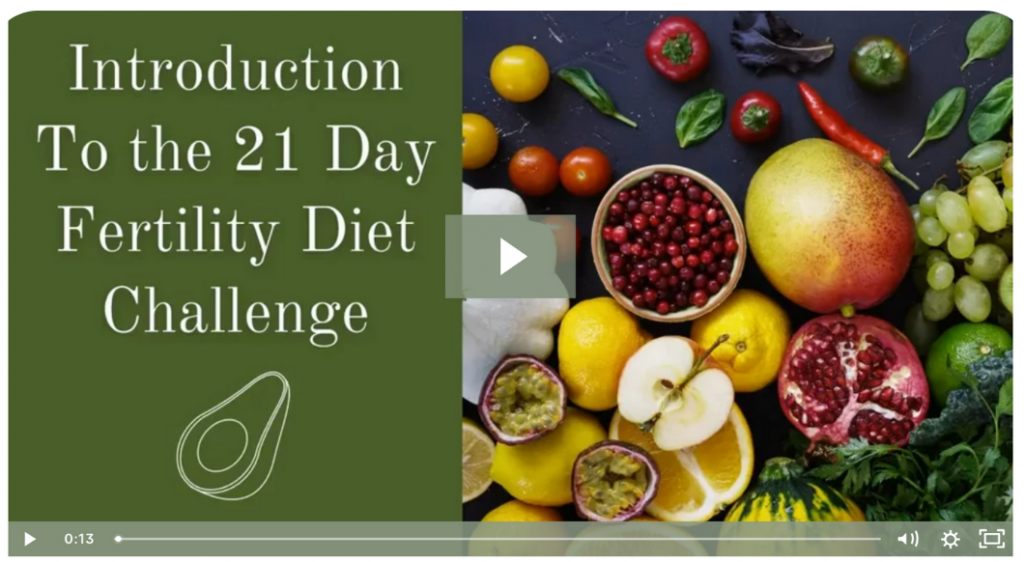PCOS is a growing fertility-health concern for women around the world. We frequently receive questions about the PCOS Fertility Diet, and combining fertility herbs and supplements with medications.
Q1. What is a good combination of natural supplements to take for PCOS? I see a big list here; http://natural-fertility-info.com/pcos-fertility-diet, but I’m sure you don’t take everything on this list, right?
A: Start by following a PCOS Fertility Diet and adjusting your lifestyle as outlined in the article you mentioned.
Next, I suggest considering herbs for hormone balance. Herbs like White Peony (Paeonia officinalis), Vitex (Vitex agnus-castus), Saw Palmetto (Serenoa repens), and Dong Quai (Angelica sinensis) can help to regulate the menstrual cycle and support normal ovulation. I find a combination of herbs is usually superior to a single herb for PCOS. Learn about Harmonize Formula, which can be taken all month long- a real benefit if your cycle is currently long, irregular or absent.
I also recommend targeted nutritional supplements:
- Myo-Inositol, part of the B complex, has been found to help support better hormone balance for polycystic ovarian syndrome in clinical research (Gynecological Endocrinology, 2012).
- DIM (Diindolylmethane), a constituent from cruciferous vegetables, can help the body to metabolize and remove excess estrogen.
If you’re looking for a supplement program designed to help reduce PCOS symptoms with overall PCOS support in mind, the HormoneWise Fertility Kit is worth learning more about. It contains Harmonize, Myo-inositol, DIM, a fertility multivitamin and Cod Liver Oil.
Q2. “Hi I am suffering from PCOS from many years. Used contraceptive pills for 3 years. When I stop taking the Pill, I suffer from severe acne. Also Im about get married in a year and I am worried about pregnancy? Please guide me? I want to change my diet to a PCOS diet, but I do not know the best steps. Thanks!
A: It’s great you’re being proactive. Any diet change can be challenging, but trust me, a PCOS Fertility Diet is doable! The first step for most women is cutting out processed foods, refined sugar and refined carbohydrates. The second step is to balance your protein intake with an equal or lesser amount of carbohydrates from whole foods. These changes alone can make a huge difference for women with PCOS. Another tip: Don’t skip meals. It wreaks havoc with metabolism, insulin response and blood sugar balance. For your daily diet, keep your focus on nutrient-dense foods: high-quality proteins, fresh fruit (low glycemic) and vegetables, essential fats, and unprocessed, whole grains.
There are additional topical treatments and a new LED Blue light therapy for acne. Talk to a dermatologist or an herbalist that specializes in dermatologic conditions to learn more.
Physical exercise is another pillar for support. Strive for regular exercise 4-5 days a week. For supplements, I suggest learning more about myo-inositol and fertility herbs for PCOS, such as those in the HormoneWise Fertility Kit linked above.
Know that a Fertility Consultation is a good idea for more step by step support if you’ve struggled for a long time, or are not sure where to begin.
Q3. Hi! Is it fine to combine Vitex, Maca & Metformin? I’m 32 y/o, with PCOS.
A: This is an important topic! It may be tempting to try herbs with medical fertility treatments or drugs like Metformin, but we don’t recommend it. We just don’t have enough information to make a qualified decision that it’s safe or beneficial to combine herbs with drugs.
Additionally, as an herbalist, I’m not licensed to give out medical advice, including information on how to use prescription drugs like Metformin. I can offer some suggestions that I hope will be helpful as you move forward. If you are on Metformin and wishing to try herbs, please consult with your doctor or pharmacist.
Cautions about combining herbs and medication:
- Avoid using herbs that have a similar action to a medication you’re using. This could lead to interaction.
- Avoid using herbs with medications that must stay at certain levels in the body to be effective. Cleansing herbs could clear medication too quickly from the system, leading to problems.
- Avoid using herbs at high dosages or in concentrated forms like standardized herbs with medicines. Highly concentrated or standardized herbs can have a drug like action, and need to be monitored closely, especially if you’re also taking prescription drugs.
Resources to learn more:
Combining Natural and Medical Approaches To Fertility: A How-to Guide
Interactions Between Fertility Herbs & Medications
Watch The Introduction to the 21 Day Fertility Diet Challenge
- Learn how to transition to a natural fertility diet by focusing on the important 5
- Get all the details on how to use nutrition as a tool for hormonal health, cell protection and fertility wellness
- An effective tool to help your tastebuds transition towards healthier foods
- Learn which foods are most important for fertility and how to regularly eat them

Q4. I’m just starting a PCOS diet and about 10 day into it. I’ve just started my period after not having it for about 2 1/2 years. Needless to say, I’m so happy. To not get ahead of myself I’d like some suggestions or guidance for when would be a good time to check if I’m ovulating. I was terribly concerned that at my age of 36 my clock was going to run out. I was first on the foster to adopt list, but in my search for my own health I’m finding out that PCOS doesn’t mean no babies of my own. I’m taking Berberine 3x day and Myo-inositol and D-chiro-inositol. I’m already making fertility smoothies as a part of my diet daily. Any guidance is much appreciated.
Reply from Elizabeth Willett, MA, CH, Senior Herbalist
A: What wonderful news! We suggest at minimum three months of consistent use of natural therapies and following a natural fertility program to support both nutrition and menstrual cycle health for women with PCOS.
Given the information you have shared, I would suggest allowing the body this time to continue to balance before getting too into charting or tracking ovulation. It is entirely up to you, but I suggest this given the experiences of others I’ve worked with who are battling PCOS. So many share they struggle with it, and it is frustrating to chart or track ovulation. Everyone is different, but I don’t want it causing stress for you.
If you want to track ovulation, you can start ovulation testing with your next period. If you suspect that you are not ovulating, then due to your age, you may consider blood tests to measure hormones that affect fertility.
Keep up the great work! Look for the changes in your overall health, energy and menstrual cycle. Above all else, be kind to yourself! A journey to renewed health and fertility is the journey of a lifetime.
- Personal correspondence with Anna-Marija Helt, PhD – Clinical Herbalist
- Personal correspondence with Elizabeth Willett, MA, CH
- Barton, D. (2018). Interactions Between Fertility Herbs & Medication. Retrieved from: https://natural-fertility-info.com/interactions-between-fertility-herbs-medications.html
- Unfer V, Carlomagno G, Dante G, Facchinetti F. (2012, Feb.). Effects of myo-inositol in women with PCOS: a systematic review of randomized controlled trials. Gynecological Endocrinology; 28 (7), 509–515. DOI: 10.3109/09513590.2011.650660. Retrieved from: https://www.researchgate.net/publication/221797391_Effects_of_myo-inositol_in_women_with_PCOS_A_systematic_review_of_randomized_controlled_trials





